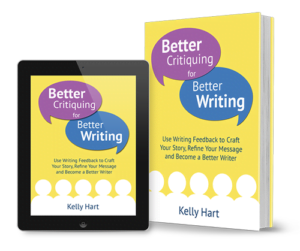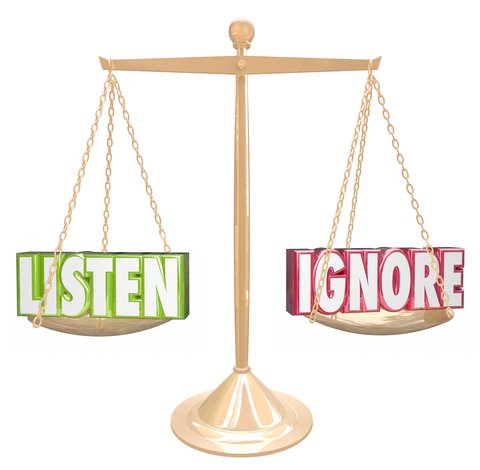Kelly Hart
Being part of a critique group can help indie authors improve the quality of their books prior to publication, at no cost to the author – except perhaps in pride and confidence. And you have much to gain from the process.
But it requires courage and focus not to take any negative comments personally. From Australia, Kelly Hart, author of Better Critiquing for Better Writing, provides sympathetic and constructive advice on how to turn a bad critique into a positive experience.
A Step in the Right Direction
I believe that giving and receiving critiques on writing is the first stepping stone a writer takes towards becoming an author. But critiquing another writer’s work is not as easy as it sounds. New writers are often hesitant to offer or receive critique because they’re afraid of doing it incorrectly, of hurting another writer’s feelings, or afraid other writers might pass harsh judgement on their writing.
A Two-Way Process
The thing is critiquing isn’t just about helping someone else improve their writing. It can give you a reader’s perspective on writing, which is invaluable. You’ll start to recognise if your writing has the same problems found in the work you’re critiquing. This will encourage you to look for issues in your writing, and you may discover new techniques to resolve those issues.
Better Now Than Post-Publication in the Public Eye

Kelly Hart's guidebook on the critiquing
If your goal is to be a published author, your writing will end up in the public domain at some point, and you’ll need to be prepared for what people will say. Let’s face it: there are some people out there who say things that are better left unsaid. There are also book reviewers who stake their reputation on being brutally honest.
For this reason your writing needs to be at its best before you publish it. This can be fast-tracked with critiquing. Critiquing groups can be a supportive environment where you learn how to accept feedback and separate yourself from your writing, while you strengthen your manuscript.
Why Bad Critiques Happen
I’m not going to tell you bad critiques don’t happen because I have seen them occur; but usually there is a reason. Most often it comes down to a lack of knowledge about critiquing. That’s right, the writing isn’t the problem. It’s either the person being critiqued or the person giving the critique, or a combination of the two.
Sometimes the person whose writing is being critiqued is not ready for the experience, or the people they’re receiving a critique from will give them feedback beyond their writing experience.
Other times, the person doing the critique may not know how to give helpful feedback, or the critique they’re giving is too harsh. These problems can be avoided by making sure you find the right group or critiquing partner.
How to React to a Bad Critique
But, what if you get a bad critique?
When you get a bad critique, it’s best to put it aside for a few days and forget about it. Instead, use the critiques you feel more positive about to rewrite your work. Focus on the good that has come out of these other critiques – how they have improved your work.
After the few days is up, go back and reread the critique, but don’t focus on anything that is nasty or not useful. Comments like ‘I don’t like this section’ need to be water off a duck’s back if they haven’t given you a reason; instead use it as a place marker. The critiquer has found something that has made them pause, so take another look at that section to see if you can find anything. If they gave you a reason for the comment, decide if it has any merit. If it doesn’t, discard that comment and move on.
A Balancing Act
Once you reach the end of the critique, you need to weigh up whether or not it was worthwhile getting a critique from this person. In the end, were there more valid comments than invalid? Did getting a critique from this person harm your confidence as a writer, or has it made you more determined to do better?
You need to decide what’s best for you. If you decide that it wasn’t worth it, don’t put yourself through getting another critique from this person, find someone else to critique your writing.
OVER TO YOU Do you take part in critiques? We'd love to hear your experiences, good or bad – feel free to leave a comment.
#Authors - how to turn a bad critique into a positive experience by @BetterScribe Share on X





I appreciate folks who share critiques. I am so not good at critiquing. I stopped years ago. I made one aspiring author so angry she trashed me for twenty five years. It wasn’t until lo, these many years later and several book contracts and experience that she issued a public apology. She pulled that old ms out and read it and cringed. The thing is, I thought the story arc had a lot of merit. It was just raw. She didn’t not hear ‘merit’ or ‘great story arc’. Too often writers use the critiquing process as an affirmation the author can write. I always say: Writing is not the issue: Ask, instead, “Can I tell a story?” I don’t know of a single contracted author who does not get revision letters from editors. We do, buckets of them. Now, I’m indie. I know how to tell a story, but by golly, I hire a beta reader, and editor, a formatter and a cover artist. If one is exchanging critiques, my idea would be to set ground rules. Good luck to all with your writing.
Had an experience just before Christmas where a reader contacted me through my blog, basically saying that because of a mistake I’d made he’d no longer be reading any of my future works. Well he was right, I’d made a totally boneheaded mistake that had gotten through my readers, my editor and myself. I corrected the mistake and wrote him a letter apologizing for the mistake and informing him that I’d corrected the MS and had resubmitted it to amazon. I also sent the corrected copy to his kindle (once he set up the device to receive the corrected file. I also sent him a print copy of my next book as a mea culpa.
The end result is he provided me with a report of typos in the first book and then the second. Which of course allowed me to further correct my work. It also turned out he had been involved in a field of great interest to a future book I’m currently working on, which turned out to be a real windfall.
So not only did I turn him around, I gained a great beta reader and a valuable resource for research.
The critique group I’ve been going to for years ranges from a minimalist who can’t stand even a hint of introspection and scrawls “Condense!” next to almost every paragraph to a lady who loves every word I write. In fact, though the Minimalist’s writing drives ME crazy (most of his paragraphs are one line long!), I’ve found when I come back after letting the manuscript age a bit that his ear for my excesses is right on. It does take a little distance from your work and from the critique to figure out what to do with comments. Thanks for that good advice!
Hi Virginia:
I agree.
Hi Virginia,
Distance can really help when it comes to seeing a manuscript clearly. It sounds like after you take time away from your manuscript you’re able to come to a happy medium between the “leave it as is” and “condense” feedback.
It’s always flattering to find someone that loves our writing “as is” but unfortunately that kind of feedback doesn’t tell us how we can improve our writing.
I belonged to a critique group. Once. But I don’t say they can’t work for others. In my view, though, writers do better to exercise “due diligence” in finding a capable professional gun-for-hire–an editor with lots of experience. Pay that person to provide a “reader’s report” on your manuscript, and then use what you learn to make your story or memoir better. Assuming you think well of this editor, hire him/her to do a line-edit of your work. I am currently working in this way with someone, and our arrangement includes paid-for conference calls. It’s proving to be very helpful.
I wish you the best for 2016 Barry.
Hi Barry,
Thanks for your comment. I’m sorry to hear the your critique group experience didn’t work out for you. Sometimes we have to try a few groups before we find that right fit.
Your “reader’s report” sounds very similar to a manuscript assessment which is something I recommend to my clients. Great to hear that you have found an editor you click with! It makes the experience of publishing so much easier.
Kelly… I would know each member of the critique group, and therefore know where they’re coming from, and so would have learned to value one critique over another. If I get a particularly potent evaluation, I would invite that person for a coffee and go deeper, to learn more about their failure to grasp what I was trying to say. I LOVE this part of the writing process. Invariably, I find myself closer to that person who trashed my piece.
Hi PJ Reece,
It sounds like you have worked out a great system for dealing with bad critiques. Love the idea of going to coffee with them for a one-on-one discussion.
Or, how does one deal with a somewhat positive review? One such was so amateurish that I won’t mention the service. A Kirkus review started by getting two salient and obvious fictive ‘facts’ wrong. I paid for reviews to use in queries to legit publishers. I had self-published (an agonizing, drawn-out process) which, it seems, disqualifies one for agents, publishers and even some contests.
So the real question is: How does one get a legitimate review or a ‘critique’ by a fellow writer?
Jerry, do you use beta readers prior to publication at all? Lots of indie authors find those invaluable for early critiques, and beta readers who enjoyed your book may also be happy to post reviews once it’s published. Also, if you don’t ask, you don’t get – so it’s worth identifying people you’d like to review your work and asking them politely and individually if they’d care to review your book. Works well with people that have already reviewed similar books in your genre and who are seasoned reviewers. Or ask book bloggers who are also writers. There are plenty of people out there who positively enjoy being approached to review books, if you go about it in the right way. You might find this post helpful: https://selfpublishingadvice.org/how-to-get-book-reviews/
Hi Jerry,
Reviews have a different purpose to critiques. Both are meant to be honest opinions, but critiques / manuscript assessments are there to help the writer improve their work before it goes to publication, whereas reviews are more for marketing purposes.
Critiques are best done by writers or editors, but reviews are usually from readers of the genre. If you’re after more reviews you need to discover where these readers hang out (Facebook, Twitter, blogs) and start a conversation before asking them to review your book.
Hi Jerry:
Boy when you talk about agonizing, editing a book is truly agonizing but so very much needed.
I am caught between a ‘Rock’ and a ‘Hard Place.’
I have two head injuries and got a C in college English.
I have edited and edited and edit my 22 eBooks but with my injuries I can only reach a certain part of success grammar wise.
Editing services have quoted me from $11,400 to $33,000 to properly grammar edit my eBooks which I might as well try to walk on the moon to afford that cost.
So I am left with trying to ‘Polish’ each manuscript better than the time before.
I agree 100% that editing is as important as the book content.
Hi Raymond,
It’s always hard to edit your own writing because as the writer / editor we don’t get the benefit of seeing the manuscript for the first time. Most of the time we see what we think we have written instead of what is really on the page.
To combat this you may find a critiquing group or beta readers helpful. I have a full article about beta readers and how to use them at this link: http://www.betterscribe.com/beta-readers/
Good Morning Kelly
Thank you for your comment.
I have recently learned if I go back to one of my eBooks I wrote six months ago or longer and read it as a reader would do, the excitement of writing it has worn off enough that I can see the mistakes easier. Grammar though, the placement of commas seems to be my weakest point.
Raymond
My experience has been that I can gain even from a bad critique. I look at it from the viewpoint this is a potential purchaser of my writing. If I don’t grab their attention and hold it positively, then I will lose them as a customer of future writings. That does not mean I change my writing just to satisfy them. There are times you have to realize not everyone is going to care for what you have written. Just take what can be used, apply it, and move on.
Thank you for the great comment.
Hi J.L. Callison,
This is a great attitude have towards bad critiques. I also like to know who the critiquer is and their experience. I would pay more attention to a bad critique from a fan of the genre, than a bad critique from someone who hates that genre.